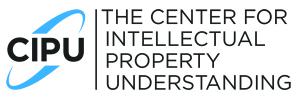Disharmony Over Sharing Intellectual Property and Acceptable IP Behavior Persist, CIPU Survey Finds
Findings from an independent survey of IP creators and professionals show strong agreement on the value of IP rights but not on what represents good IP behavior
Members are more divided when it comes to comparing IP rights to other types of property, like real estate, and whether or not IP rights encourage sharing.
While inventors and creators responding had a generally favorable view of IP rights, only 71% of respondents believe strongly that patents have a positive impact on innovation and 68% on the economy as a whole (slide 13). Only 73% believe strongly in copyrights' positive impact on creative expression and 66% on society as a whole (slide 14).
There is less agreement across the community that IP protections encourage sharing. While 71% agree with this statement, only 36% agree strongly. Another 35% agree somewhat, 13% have no opinion, and 16% disagree, some strongly. IP attorneys (25%) are the most likely to disagree.
Good Behavior Needs to be Taught
96% of those responding to the study, "Intellectual Property Principles: What the IP Community Regards as Important," believe that good IP behavior needs to be taught, with 76% believing strongly. Four percent were neutral or had no opinion. No negative responses were recorded.
As far as infringing IP rights, 92% agree it is harmful to businesses, individuals and society, 71% strongly. Four percent were neutral and another four percent disagreed, some strongly.
For those with fewer than 10 years experience in IP 9% had a negative view of patents on the economy. Those in IP services and investors, 14%, were at least somewhat negatively disposed towards copyrights as a benefit to society.
"The CIPU Survey findings show that while the IP community is in sync in many areas there is widespread disagreement on fundamental topics," says Bruce Berman, CIPU Chairman and Co-Founder. "Identifying where and how much forms the basis of deeper understanding and better education."
In terms of value to owners and society, the strongest agreement was among was IP services providers, investors and consultants with 100%, followed by educators and government with 97%. Corporate and inventor/creator were lowest at 94%.
100% of corporate and consultants believe that IP infringement hurts businesses. Only 91% of attorneys think so and 88% of those in education and government. IP theft deliberate or not, threatens jobs and compromises consumer safety: 98% of those with more than 30 years IP experience but only 85% or those will less than 10 years experience.
Those who were the least positive about patents impact on the economy were Inventors/Creators, 10% negative, followed by IP Attorneys, 7%, and Educators and Government, 6%. Those with less than ten years experience were noticeably more negative than those with 30 or more years experience.
IP Community Beliefs
The survey conducted for the Center for Intellectual Property Understanding, a non-partisan non-profit, is intended to measure the IP community's attitude toward principles like IP supports innovation, creative expression and the economy, and how best to convey them. A total of 213 persons responded, providing a certainty level of 95%. Respondents who participated in the study include inventors and content creators, IP lawyers, educators, government administrators and policymakers.
The U.S. Chamber of Commerce’s Global Innovation Policy Center (GIPC) recently announced that it has joined with 30 other signatories to publish a framework of intellectual property principles designed to maintain America’s global lead in innovation. Supported by a coalition of well-recognized individuals and trade organizations supporting greater certainty in patents and copyrights (including CIPU), the framework of IP principles is intended to serve as a guide for policymakers to address issues currently facing the nation’s IP system.
Broadly speaking, the GIPC principles focus on five primary goals to be achieved by American lawmakers and policymakers: 1) national security, 2) technological leadership, 3) fostering creative expression, 4) enforcing the rule of law, and 5) ensuring full access to the innovation ecosystem for all.
In keeping with the GIPC initiative, 95% of those responding to CIPU's IP Community Survey indicated the four basic rules conveyed on the IPBasics.org site were helpful to IP understanding. They are:
- Intellectual property is property
- IP protections encourage sharing
- IP infringement has consequences
- Good IP behavior is learned
When evaluating the CIPU "Four Principles" content on IPBasics.org, 94% of the survey respondents said it is helpful to their understanding, while 96% indicated it is useful to a broader audience. 93% responded favorably as to whether the principles are unique and differentiated from other content.
Survey questions were directed primarily to patents and copyrights, but also trademarks and trade secrets. Respondents included, creators, lawyers, government, educators, investors and corporate managers primarily in the U.S. The survey was conducted for CIPU by response: AI, a leading market research firm.
For the summary slides of the survey, "Intellectual Property Principles: What the IP Community Regards as Important," visit CIPU at Resources, Reports.
The Center for Intellectual Property Understanding is an independent nonprofit established in 2016 that raises awareness about the impact of IP on people, business and society. CIPU provides outreach to improve familiarity with IP rights and promote sharing. It holds events, such as the annual IP Awareness Summit®, curates IPBasics.org, an information portal, and produces ‘Understanding IP Matters,’ a leading podcast series, now in its third season. UIPM enables successful creators and entrepreneurs to share their IP story. For more information, visit understandingip.org.
Bruce Berman
Center for Intellectual Property Understanding
+1 917-225-6184
email us here
Visit us on social media:
Facebook
Twitter
LinkedIn
Instagram
YouTube
Legal Disclaimer:
EIN Presswire provides this news content "as is" without warranty of any kind. We do not accept any responsibility or liability for the accuracy, content, images, videos, licenses, completeness, legality, or reliability of the information contained in this article. If you have any complaints or copyright issues related to this article, kindly contact the author above.



